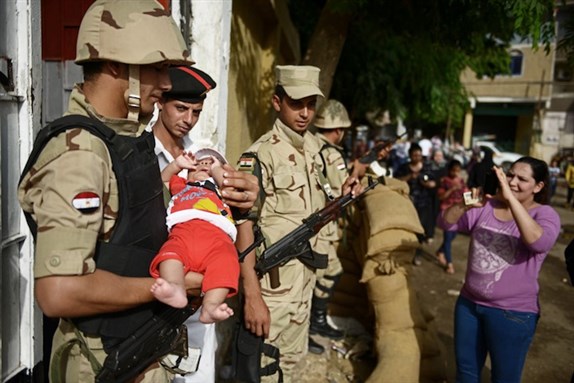[The book Occupied Pleasures, by Tanya Habjouqa, was published by FotoEvidence, 2015. All photos by Tanya Habjouqa. The excerpts below are from “Ephemeral Moments of Pleasure: Tanya Habjouqa’s photography,” by Laleh Khalili, published in Occupied Pleasures.]
When war, colonialism, or extreme political violence become the scaffolding of everyday life, photojournalism emerges as the most prevalent document recording the enormity of the prevailing conditions. This photojournalism is crucial. The obligation to remember our histories and pasts can only be met if we have imagery with which we can narrate what has happened to us, and the work of photojournalists provides some of this imagery. Without this work we would not be able to imagine the vastness of the system of control the Israeli military uses to discipline Palestinians; without this work, the moment of conflict, of violent collision, of loss, would remain anaemically verbal. That so frequently the occupied Palestinian territories are subjected to curfews and closures, to enforced invisibility behind walls and detention centres and security zones, reinforces the necessity of making politics visible through images and news items. ...
But photojournalism, though necessary, is not sufficient.
We also need imagery that captures the poetry of everyday life, and not only the prose of strife. We need the fleeting wash of pleasure to colour our memories in the interstices of devastation, ruination and grief. We need to remember laughter too, the exhilaration of evanescent triumphs, fugitive joys. We need to remember people embodied in their flesh and not just reflected through the lens of news, or prejudice, or stereotype. We need supple bodies, bodies bent in joy, or in work, or expanded at rest, but not dead and bloodied.
And Tanya Habjouqa’s photography captures these evanescent moments, the gossamer pleasures, the loving-laughing-living bodies. Her images are palimpsests containing layers after layer of politics, narrative, landscape, history – and humour. See for example her javelin-throwing Al-Quds student. There she is, her body the only curved line as she bends backwards in an image full of unforgiving straight lines, the most prominent being the verticals of the wall behind her. And her javelin defies the wall, connecting the ground to the sky beyond.
Or my favourite, the cigarette smoker catching a break after passing through the Qalandia checkpoint with his Eid sheep in the front seat, and against the backdrop of the wall. The first thing that strikes the viewer is the humour: the sheep apprehensively observing the driver. The second thing that impresses is the lighting: man and animal bathed in the glow of artificial lights. And finally, it is the texts and images upon the wall that draw the eye, every graffito an historical statement fixed in paint on concrete. What makes this picture particularly political is that one of the images on the wall is of Marwan Barghuthi, the leader of militant Al-Aqsa Martyrs’ Brigade who has arrested in the West Bank in 2002 and has been sentenced to five life sentences. Detention juxtaposed against a moment of respite illuminates the extremities of the Palestinian narrative: celebration and mourning, respite and struggle, and the pleasure of smoking a cigarette. ...
What this work does is to challenge the notion that Palestinians are first and foremost victims. It brings together the indisputable condition of their lives – occupation, violence, surveillance – and shows us that even within the confines of a normalised atrocity, the spirit effervesces. It is an insistence on living amidst the war. Palestine’s great poet, Mahmoud Darwish has a wonderful prose poem acclaiming his morning coffee. He writes, “I want the aroma of coffee. I need five minutes. I want a five-minute truce for the sake of coffee. I have no personal wish other than to make a cup of coffee. With this madness I define my task and my aim.” There is a kind of beautiful obstinacy in the insistence on morning coffee between mortar shells and sniper bullets. The breather, that moment of truce between the body and life, is what Habjouqa captures so beautifully without ever denying the context.
- Laleh Khalili
Laleh Khalili is a professor of Politics of the Modern Middle East at the School of Oriental and African Studies, London. She is the author of Time in the Shadows: Confinement in Counterinsurgencies and Heroes and Martyrs of Palestine: The Politics of National Commemoration, as well as “The politics of pleasure: Promenading on the Corniche and beachgoing,” in Environment and Planning D: Society and Space, 2015.
See also Madeline Yale Preston’s review, “The Fringes of Palestinian Representations: Tanya Habjouqa’s Occupied Pleasures,” in Tribe 01, 2015:
“Occupied Pleasures offers deepened, anthropological accounts of life across the occupied Palestinian territories – humorous and sometimes even satirical recordings of Palestinians’ everyday existence, ironically set within obstinately turbulent surroundings.”
[Available at the Educational Book Store and American Colony Book store in East Jerusalem, as well as from other vendors.]
![[Hayat (left) teaches yoga to the residents of her village, Zataara, on the outskirts of Bethlehem in the West Bank. The women are increasing in number each week. Photo by Tanya Habjouqa.]](https://kms.jadaliyya.com/Images/357x383xo/TanyaHabjouqa6.jpg)














